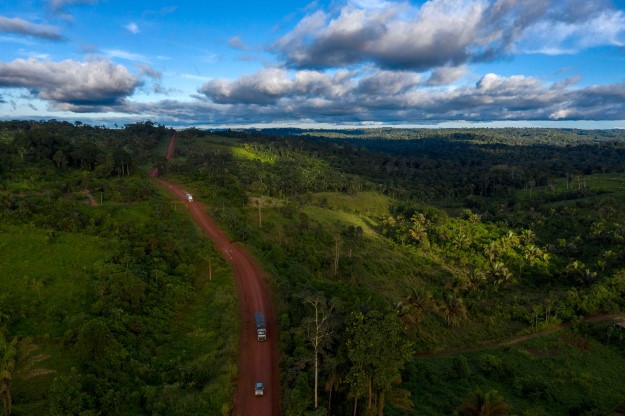As a candidate, Brazil’s Jair Bolsonaro promised to undo environmental regulations. As president, he has made good on that promise and more – pushing a slate of anti-environment measures that, if enacted, would sabotage years of progress on environmental protection and jeopardize large tracts of the Amazon rainforest and Cerrado savanna. That spells trouble both for Brazil’s economy and the global fight against climate change.
Brazil started to develop an environmental protection system in the 1980s. Like most countries, this system remains anchored in the principle that those who damage human health or the environment should be held to account. Licensing schemes, fines and regulatory standards, and other instruments, have all been adopted and strengthened over the years. Brazil has pioneered innovative approaches to protection, such as the Amazon Fund, which was created in 2008 with the aim of sharing the costs of conservation with the international community.
All that made Brazil an example of how environmental protection can go hand-in-hand with economic progress. An 80% decline in deforestation from 2005 to 2014 coincided with 3.5% average annual economic growth and a 56% total increase in national agricultural production. That happened not despite economic pressures, but because sectors that traditionally contributed to deforestation transformed their way of doing business and, more importantly, because the systems for monitoring and punishing transgressors functioned properly.
Of course there were gaps in regulation. But although budget and enforcement capacity were limited, environmental authorities were able to act strategically. With additional steps to boost law enforcement and added incentives for sustainability, Brazil could have approached its goal of zero illegal deforestation by 2030, a commitment it made under the auspices of the Paris Agreement.
No longer. With Bolsonaro in charge, the message to polluters is clear: Do what you want, and the government will have your back.
Since Bolsonaro took office, land grabbing, a practice by which criminal organizations invade public land, clear-cut forests and apply for government agriculture aid, has been booming. Part of the reason is Minister of the Environment Ricardo Salles’ decision to put all protected areas in Brazil up for review. From the Itatiaia National Park (created in 1934) to the Ararinha Azul Wildlife Refuge (created in 2018), protections on 334 natural areas are now being questioned by the government.
Illegal mining is also exploding, threatening indigenous peoples and local communities in vulnerable areas. An emblematic example is in the Yanomami Indigenous Territory, on the border with Colombia and Venezuela. The presence of illegal gold miners in the area is as high as it has been since the territory’s demarcation in 1992. But despite the influx, the prosecution and punishment of illegal mining is at its lowest rate in 11 years, while the budget for environmental law enforcement is down 23%. Bolsonaro himself has defended illegal loggers who were caught in the Jamari National Forest.
The administration has also supported steps to weaken environmental protections in Congress. Thanks in part to the president’s son, Senator Flávio Bolsonaro, legislators introduced a bill that would have removed requirements for private landowners to preserve a portion of natural growth on their land. The bill was tabled thanks to pushback in Congress and from the public, and with good cause: If rural landowners were to get rid of all the existing natural areas under their control, the resulting emissions released into the atmosphere would be equivalent to all of Brazil’s emissions between 1990 and 2017. Even the largest agribusiness association in the country opposed the measure.
The framework for environmental governance has also been pushed in the wrong direction. The National Council for the Environment has become less participatory, with fewer seats offered to civil society and none given to academia. Salles has floated the possibility of similar changes with the Amazon Fund, risking the loss of $3 billion already invested by Norway, Germany and Petrobras.
All this marks a dramatic reversal on Brazil’s track record on the environment. Yes, environmental laws could have been better implemented before Bolsonaro came to office, and pro-environment policies should have been consolidated and improved. But Bolsonaro is promoting a shift from science-based policymaking and intelligent law enforcement to discretionary decision-making with zero enforcement practices.
The effect of his approach has already become evident on deforestation rates, which in May surged to their highest levels since 1988, according to the National Space Agency. Bolsonaro’s free pass to exploit the environment puts compliant businesses in jeopardy, while access for Brazilian agricultural and mining commodities may suffer restrictions in premium markets.
Undermining environmental policies also goes against what is good for the economy – wanton exploitation of natural resources both destroys the environment and wipes out a potential source of tax revenue for the government. Competitiveness suffers, as good and bad actors are mixed in the market, and businesses lose trust in institutions and environmental rules of the road over the long term.
Both for the environment and his own economic agenda, Bolsonaro should focus on better implementing environmental rules, so that the government can remain a trustworthy actor from the perspective of citizens, landowners, investors and commercial partners.
—
Unterstell is the director of policy think tank Talanoa Solutions. Follow her on Twitter @unatalie








